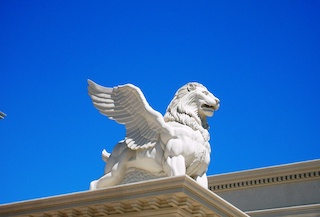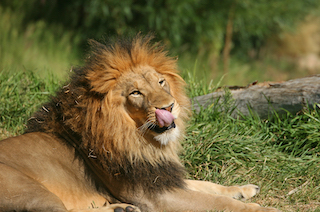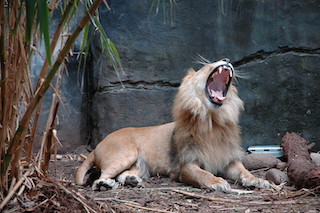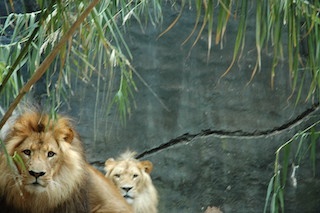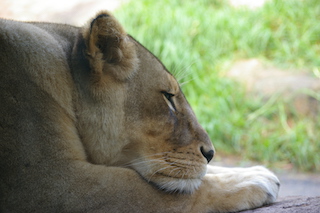The Lion Symbolism In African Cultures
The lion has long the most powerful and majestic animals in the animal kingdom. Revered for its strength, courage, and regal stature, the lion holds deep symbolic significance across many cultures, particularly in Africa. In African cultures, the lion is not only a symbol of power and dominance. It also represents important spiritual, social, and philosophical themes. These are central to African life, history, and worldview.
From ancient civilizations to modern-day practices, the lion’s role in African cultures is multifaceted. It is a symbol of leadership, courage, wisdom, and protection, and has deep roots in African folklore, religion, and art. In this article, we will explore what the lion stands for in African cultures. We will shed light on its deep-rooted symbolism and meaning.
African mythology and culture
Lions have a significant presence in African mythology, representing many qualities that many African societies value. As apex predators, lions embody the physical power. It also stands for the wisdom that comes with survival and leadership in the harsh African landscape. However, the lion is more than just a powerful predator. It holds profound cultural, spiritual, and symbolic meanings. They influence both everyday life and the deeper, spiritual understanding of the world.
1) Leadership and kingship
In many African cultures, the lion means leadership and kingship. The lion’s strength, dominance, and fearlessness make it a natural symbol of rulers and leaders. In several African tribes, the lion is a symbol of royalty. It represents the ruling monarch, particularly those who lead with authority and wisdom.
For example, in the Kingdom of Swaziland, the lion is a symbol of the monarchy. The lion is the protector of the people and is close to the king. And the king is the protector of the land and its people. The lion’s fierce nature reflects the king’s role in defending the kingdom, ensuring the well-being of his people, and commanding respect through strength.
Similarly, in the history of the Ashanti people of Ghana, the lion was a symbol of the Ashanti king, who was the protector of the kingdom and a source of strength and authority. The lion, in this context, represents the embodiment of royal power, wisdom, and the protection of the people.
2) Courage and bravery
The lion’s courage and fearlessness are among its most prominent attributes. In African traditions, the lion is a symbol of bravery and valour. It is a creature that faces challenges head-on and never backs down from a fight, qualities that many African communities highly esteem.
Many African heroes and warriors compares to lions due to their bravery in battle or their unyielding spirit in the face of adversity. The lion often encourages individuals to embody courage in their own lives, particularly when facing trials or obstacles. The famous Zulu saying, Simba kuhlangana kahle, is a testament to the enduring power of courage, strength, and resolve, even when faced with daunting circumstances.
In many cultures, young boys learn to be brave and resilient, qualities that often belong to lion. In certain African rites of passage, young men may get the title of lion to signify their courage and readiness to step into adulthood.
3) Wisdom and strategy
In addition to its courage, the lion is a wise creature in many African cultures. This wisdom is not only about physical strength but also about understanding the world and knowing how to act strategically. Lions, as apex predators, are not only strong but also highly intelligent in how they hunt and interact with their environment. They know when to fight and when to retreat, making them a symbol of wisdom and discernment.
In several African traditions, the lion is a symbol of the importance of strategy and planning. It represents the idea that you can find wisdom in patience, foresight, and actions. The lion teaches that power is not just about brute strength but also about knowing when to use one’s resources effectively and when to wait for the right moment to strike.
The wisdom of the lion is particularly valuable in traditional African councils, where leaders or elders often draw on the lion’s symbolism to illustrate the importance of thoughtful decision-making. The lion’s strategic qualities remind leaders to approach challenges with insight and caution, not just raw power.
4) Protector and guardian
The lion also holds a powerful spiritual significance in many African cultures, often as a protector or guardian spirit. As a creature that commands respect and authority, the lion possesses spiritual qualities that can offer protection and guidance to individuals or communities.
In African folklore, lions are often spiritual protectors, warding off evil spirits and dangers. Some African tribes believe that lions have the ability to guide lost souls or provide spiritual protection to their people. This is particularly true in parts of Southern Africa, where the lion is a guardian spirit of the land and its people. Lions are emissaries of divine power and help individuals connect with the spiritual realm.
In the Maasai culture of Kenya and Tanzania, for example, the lion is a powerful and protective figure. The Maasai people have a longstanding cultural relationship with the lion, as they traditionally live in close proximity to lions and other wildlife. Lions are guardians of the land, and their roar is a call to protectors of the community.
5) Unity and strength
Lions also symbolize unity in African culture, particularly in relation to family, clan, and community life. In lion prides, cooperation and solidarity are key to survival. The lion totem, therefore, represents the strength that comes from working together for the common good. This idea of unity and collective strength is central to many African cultural values.
In some African societies, lions are symbols of family and community cohesion. The lion pride is often a metaphor for the strength of close-knit communities where each member has a role to play, and where unity and collaboration are key to overcoming adversity. The lion’s symbolism in this context encourages people to value their familial and communal ties, working together to protect and nurture the group as a whole.
African art and symbolism
The lion has a significant presence in African art, where it is often a symbol of power, beauty, and majesty. In traditional African art, the lion is often in stylised forms, emphasising its regal nature. Its image is in sculptures, paintings, textiles, and ceremonial objects. In many cases, the lion has deep roots with important cultural rites, and its image honors chiefs, kings, or spiritual leaders.
In West Africa, particularly among the Akan people of Ghana, the lion is often in the decoration of royal regalia and symbols. The lion is a prominent figure in the Akan’s gold jewelry, ceremonial masks, and traditional fabrics. It is a representation of the divine power that flows through the kingdom’s rulers, and it plays an important role in royal ceremonies and rituals.
The lion is also a popular subject in African storytelling and folklore, where it is often portrayed as a wise and powerful character. In many African folktales, the lion is depicted as a clever, strategic animal, sometimes helping the protagonist achieve their goals, and other times serving as an antagonist who challenges them to grow and prove their worth.
Lion in spiritual practices
In African spiritual practices, the lion is often seen as an intermediary between the physical world and the spiritual realm. Many African religions include animal spirits, and the lion is considered one of the most powerful animal spirits. In some cultures, the lion is associated with deities, ancestors, or gods, representing the divine strength and protection that these figures offer.
For example, in the Yoruba religion, which is practiced primarily in West Africa, the lion is seen as a symbol of the warrior spirit and is associated with the deity Ogun, the god of iron, war, and strength. Ogun is often depicted as a figure with the strength and courage of a lion, emphasizing the animal’s role in the spiritual protection and well-being of the community.
Similarly, in certain African spiritual practices, lions are seen as embodying the qualities of divine kingship and leadership. You can see the lion’s connection to divine authority in the way African rulers and spiritual leaders possess the same regal qualities of lions.
Lion’s enduring symbolism in African cultures
The lion holds a deeply rooted and multifaceted significance across African cultures. From its role as a symbol of leadership and royalty to its embodiment of courage, wisdom, and unity, the lion represents the very qualities that many African societies value. It is a symbol of strength, but also of protection, wisdom, and spiritual connection.
Across African mythology, art, and religious practices, the lion continues to stand as a powerful and revered figure, inspiring respect and admiration for its formidable attributes. The lion’s role as a guardian spirit, a leader, and a symbol of unity speaks to the enduring values that have shaped African cultures for centuries. Whether viewed through the lens of mythology, spiritual belief, or social tradition, the lion remains one of Africa’s most iconic and revered animals, embodying the collective strength, courage, and wisdom that define the continent’s cultural heritage.
By understanding the lion’s symbolism in African cultures, we gain deeper insights into the values. The spiritual beliefs have shaped the continent’s history. It continues to influence the lives of its people today. The lion’s powerful presence, both physically and symbolically, will undoubtedly remain an enduring symbol of Africa’s strength, leadership, and wisdom for generations to come.

